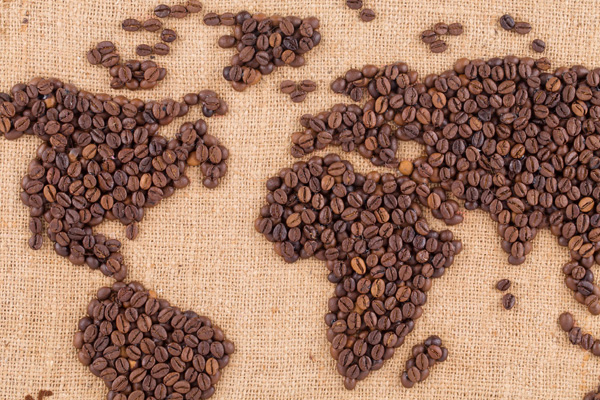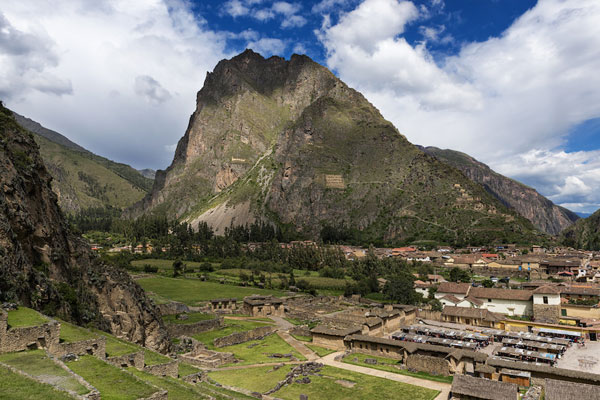
Much like a fine wine, coffee develops varietal characteristics based on the region where it is grown. Here are a few factors that affect the flavor and taste profile of your favorite beverage.
Shade Grown Coffee
When we refer to shade grown coffee, we usually mean that the surrounding land has not been destroyed for coffee-bean cultivation. This means that when you buy shade grown you are not contributing to the negative environmental impacts of deforestation and slash-and-burn agriculture.
The shade also protects the beans from the sun, so they do not develop the harsher flavor profile commonly found in cheap, mass-produced coffees. Coffee plants that are grown in the sun are subject to more diseases and pests than those grown beneath foliage such as banana trees. As a result, sun-grown coffee must be sprayed with more chemicals, and that spraying can lead to chemical residues making their way into sensitive ecosystems.
Weather Patterns
If a region has a growing season where weather patterns are strange, it can affect the taste of the coffee produced that year or the overall yield from the bushes. Damian Carrington, writing for The Guardian, notes that the climate must be temperate and stable to yield a flavorful crop. As a result, the taste of your coffee hinges on the health of the environment, with global warming and climate change threatening bean production.

The Origins Of Camano Island Coffees
We at Camano Island Coffee Roasters pride ourselves on hand-selecting ethically farmed crops from an international cast of planters and growers. Some of the locales from which we source our beans include the following:
Honduras
Honduras is quickly gaining a reputation for producing fantastic coffee. The high elevation of the coffee plantations makes for a cup that tastes faintly of molasses and caramel. Honduran coffee farmers often grow banana trees to shade their bushes, which maximizes flavor while supporting sustainable farming.
Brazil
Brazil coffee beans have a nutty, caramelized flavor that sets this roast apart from the others. With a delicate profile and relatively low acidity, Brazilian coffee is a great choice for those who like a soft, yet bittersweet taste.
Peru
Like Honduran coffee, Peruvian crops are grown at high elevation. Coffee from Peru is great for those that favor a lighter-bodied roast. It makes for a great cup anytime of the day, and during any season; we all enjoy a hot cup of coffee on a cold winter morning, but why not try this blend over ice, as a refreshing summer beverage?
New Guinea
Our New Guinea coffee is grown from seeds brought from Blue Mountain, Jamaica, and planted in New Guinea in the 1930s. As a result, this rich brew, with its chocolatey undertones, is a great alternative to Blue Mountain beans, for the discerning gourmet who wants to sample something a little different.
Guatemala
Camano Island Coffee Roasters has a unique relationship with Guatemala and its coffee. We work with the Agros Foundation in Guatemala to help farmers purchase their land with low-interest or no-interest loans. With every cup you’re helping to create economic sustainability for these farmers and their families. This allows the farmers we partner with to have better control both over their means of production, and the quality of their product.
Sumatra
Sumatra is located in the Sunda Islands of Indonesia. They produce a unique coffee because they use a process called wet hulling to prepare the beans. The beans have the skins removed, but the pulp between the bean and skin is allowed to remain on the bean for 24 hours. Beans are washed and dried until they are at a moisture level of about 30%. Sumatran coffee is full-bodied and sweet on the nose, perfect for the true connoisseur.
Ethiopia
Beans from Ethiopia are the stars of Camano Island Coffee Roasters African Reserve. This coffee will surprise you with its unique flavor profile, which calls to mind blueberry pancakes and maple syrup. This full to medium-bodied coffee is perfect for drinking with dessert, or for those that like highly flavorful coffees.
Supporting Coffee Villages
Camano Island Coffee Roasters is committed to only sourcing fairly traded and organic coffee. This means that the money you spend supports coffee growing communities all over the world. In fact, we give back to non-profit organizations in Guatemala with every coffee club purchase. Sign up today to sample our range of delicious gourmet coffees.



